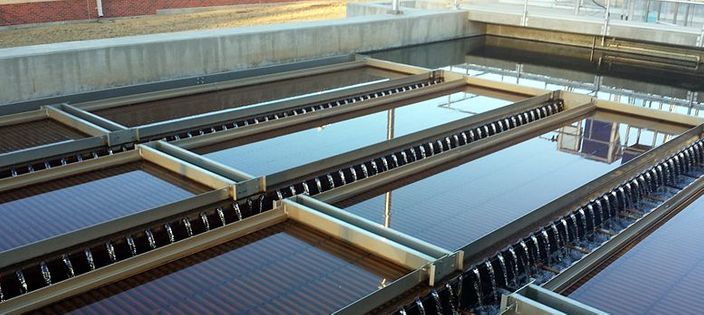Fort Smith receives an extra five years to meet consent decree terms
by May 8, 2020 6:04 pm 1,605 views

On Thursday (May 7) the United States Environmental Protection Agency (EPA) and the Arkansas Department of Environmental Quality (ADEQ) agreed that the city has proved that the sewer improvement program will be “inordinately expensive, accordingly, qualified for an additional five years of implementation time.”
The city issued a press release late Friday that it had received a five-year reprieve on the estimated $480 million consent decree entered into in 2014. That initial order gave the city 12 years to implement changes.
After years of failing to maintain water and sewer infrastructure to federal standards, the city entered into a federal consent decree with the EPA and DOJ in late 2014. The consent decree requires the city to make an estimated $480 million worth of sewer upgrades over the course of 12 years. Funding for consent decree work has come in part from water and sewer bill increases, which are up 167% since 2015. Funding for water and sewer work also comes from bonds supported by sales tax revenue and revenue from wholesale water buyers.
“The City greatly appreciates this recognition by the agencies for the additional time and will move quickly to develop a revised program implementation schedule to match the additional time,” according to the statement from City Administrator Carl Geffken’s office.
Geffken said the city has sought – since the second half of 2016 – to engage with U.S. Environmental Protection Agency to revise the consent decree requirements so they are consistent with the city’s available revenues; modify the consent decree requirements so that the city does not have to fix defects that are not causing sewer overflows; and at the United States Department of Justice’s urging, request more time to comply.
Answering a question from Fort Smith City Director Lavon Morton at the end of the board of directors’ regular meeting April 21, Geffken said the EPA and the U.S. Department of Justice decided to not provide the city consent decree relief. Morton specifically asked if the city could get some relief on the timing of the consent decree considering 2019’s record flooding of the Arkansas River and this spring’s COVID-19 pandemic, both of which have required significant resources and time by the city and were major events beyond the city’s control just 12 months. Geffken told the board, no.
On Feb. 19, the city notified the EPA that the city would fall out of compliance with the consent decree later this year. The EPA responded that the city needed to comply, the news release from the city said. Geffken said that in an effort to break the impasse, the city, through its attorneys Jerry Canfield, city attorney, and Paul Calamita, with Richmond, Va.-based AquaLaw, with which the city has a contract for work specifically dedicated to the consent decree, requested a status conference in federal court March 8.
Both the Arkansas Attorney General’s office and the EPA objected to that status conference, saying it was premature. On March 19, the city asserted a general force majeure regarding its ability to comply with the consent decree due to COVID 19.
Along with the five year extension, the EPA and ADEQ agreed to provide additional flexibility with certain interim program deadlines that will allow the Fort Smith the ability to stretch out expensive system improvements over the whole of the remaining program implementation schedule, the update said.
“This a very favorable development for which the City is very appreciative to the agencies. We believe the agencies now understand that despite the City’s herculean efforts to comply – including an unprecedented (nationally) rate increase of 167 percent between 2015 and 2017. We simply can’t afford to modernize our entire sewer system in just 12 years,” the update said.
Geffken said in the update that while five years is very helpful, the city will continue to work with the Department of Justice, the Arkansas Attorney General, the USEPA and ADEQ to meet requirements of the Clean Water Act and ensure consent decree work is affordable.
“The impact of COVID-19 on the City’s revenues is expected to necessitate additional time to comply and the City will soon discuss this new reality with the agencies,” the update said. “After the City has revised the program implementation schedule for the additional time and updated the affordability analyses, we will work to assess the impact of COVID-19 to determine what additional time beyond the current five year extension is needed.”
Geffken met Jan. 29 with Region 6 EPA Administrator Ken McQueen in Dallas to argue the city’s case for federal consent decree relief. Geffken said that meeting, in which he pled the city’s case, “went well” and McQueen “seemed sympathetic” to the city’s situation. In arguments for relief, Geffken referenced that Fort Smith has a 25% poverty rate and 25% of the children in Fort Smith schools suffer food insecurity.
Calamita told Fort Smith city directors during a Jan. 28 presentation the city has made a “tremendous commitment” toward fixing sewer system issues mandated by a federal consent decree and it may be time to ask a federal court for relief. The city has spent at least $135 million on sewer system improvements since 2015 because of the federal mandate.
